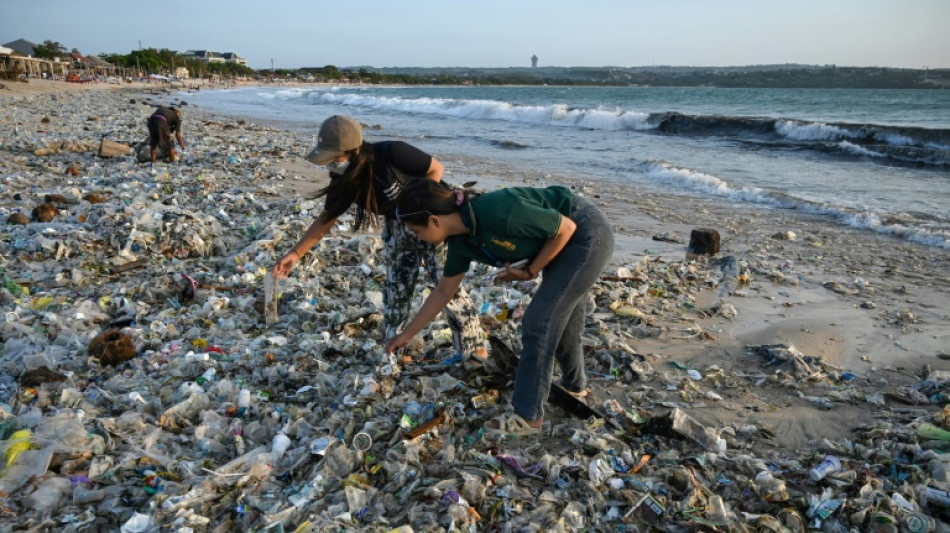
G7 to commit to reducing plastic production: French ministry

The G7 is expected to commit to reducing plastic production in order to tackle the global scourge of pollution, France's ecological transition ministry said Monday.
Plastics are found everywhere from mountaintops to ocean depths, and in human blood and breast milk.
"The G7 recognizes for the first time that the level of plastic pollution is unsustainable and that its increase is alarming," the French delegation said in a note on the sidelines of the G7 environment ministers' meeting in Turin.
"The G7 is committed to reducing the overall production of primary polymers in order to put an end to plastic pollution in 2040," the note read.
The Group of Seven nations, which includes host Italy, Canada, France, Germany, Japan, the UK and US, would lay out "a series of concrete measures" to achieve the goal, it said, without specifying which.
The Turin meeting runs into Tuesday, when a final statement is expected.
"Plastic pollution is a major issue that crosses the three major planetary crises: climate change, loss of biodiversity and pollution," France's Environment Minister Christophe Bechu said.
"The spread of plastics in all environments is a relatively recent phenomenon in human history, but it already seems to be spiralling out of control," he added.
The G7 follows negotiations in Canada on a global treaty to reduce plastic pollution, where 175 countries meet to try and nail down a world-first UN treaty to address the scourge of plastics.
The Ottawa meeting, which started on April 26, was due to wind up Monday.
Plastics producers are pushing for more recycling while environmentalists want cuts to the volume of plastic produced.
Annual production has more than doubled in 20 years to 460 million metric tons, and is on track to triple within four decades.
(B.Izyumov--DTZ)
